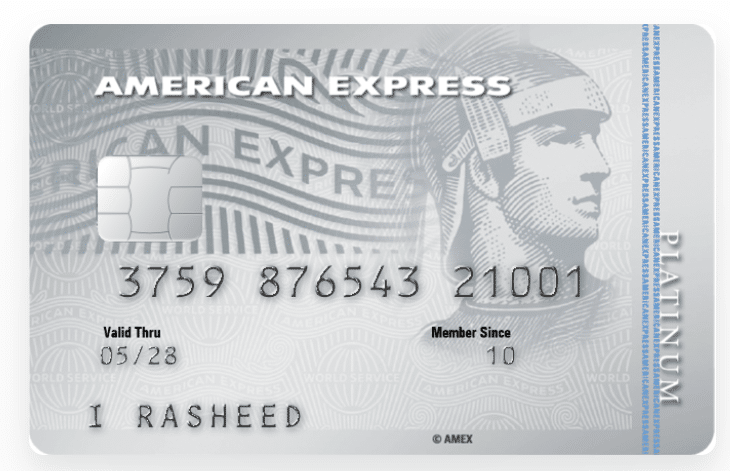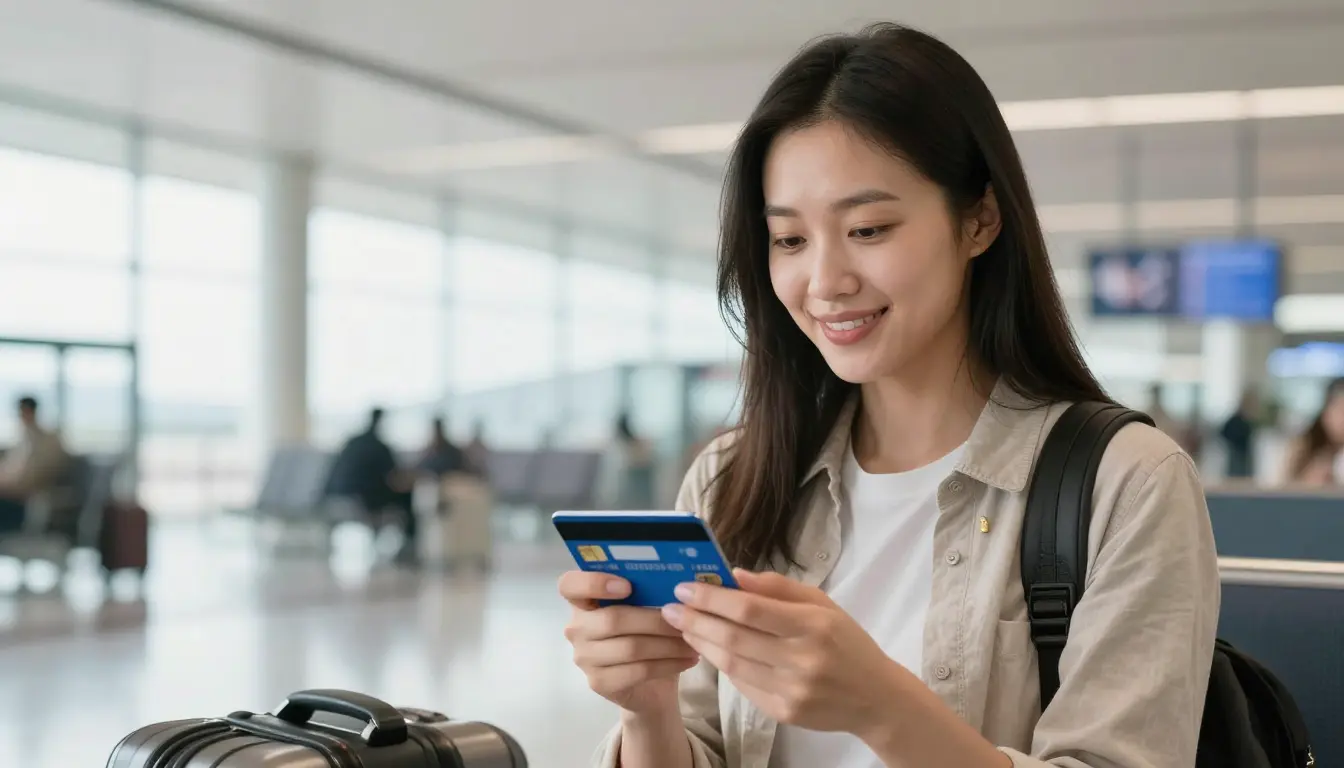Want a card for every occasion?
The Maldivian Rufiyaa (MVR) is not just any currency; it’s vital for your Maldives trip. Learning about currency exchange will make your journey simpler and help you handle money better. This guide gives you all you need to know about the Maldivian Rufiyaa, from denominations to budget tips.

BML Islamic American Express Platinum
Armed with this knowledge, you can manage your money well. Plus, you’ll fully enjoy what the Maldives have to offer.

Introduction to Currency Exchange in the Maldives
Exchanging currency is key for a smooth trip in the Maldives. Travelers need local money for meals, shopping, and fun activities. Knowing the process for currency exchange, including the best places and preferred currencies, helps manage money easily.
The Maldivian Rufiyaa is what people use here. But bringing USD, GBP, or EUR makes things simple. This way, you can plan your spending better during your stay.

Knowing where to exchange money and understand rates is important for a great Maldives trip. Learning about these helps control your budget. It also makes your visit to this beautiful island more enjoyable.
What is the Maldivian Rufiyaa?
The Maldivian Rufiyaa is important for the Maldives’ financial scene. It’s known by the MVR code. Knowing its denominations helps travelers and locals.
Understanding the ISO Code and Denominations
The MVR code stands for the Maldivian Rufiyaa, important for global deals. It’s divided into 100 laari. This makes buying things easier. Banknotes in the Maldives include:
- 5 Rufiyaa
- 10 Rufiyaa
- 20 Rufiyaa
- 50 Rufiyaa
- 100 Rufiyaa
- 500 Rufiyaa
- 1000 Rufiyaa
Each banknote type lets you buy different things conveniently.
The Role of Maldivian Rufiyaa in Local Transactions
Tourist spots often take US dollars, but the Rufiyaa is key on local islands. It’s preferred by small shops and street vendors. Having Rufiyaa helps you enjoy local life and shop easily.
Getting Started: Currency to Bring to the Maldives
When you plan a trip to the Maldives, picking the right currency is key. Knowing which money to bring can make your visit smoother. This way, you avoid any trouble with buying things locally.
Recommended Currencies: USD, GBP, and EUR
The US Dollar (USD) is the top choice in the Maldives, especially at resorts. It makes buying things easy and helps you understand prices better. The British Pound (GBP) and the Euro (EUR) also work but are not as common as USD.
- US Dollar (USD): The primary currency for most transactions.
- British Pound (GBP): Accepted, but make sure to exchange for local use wherever possible.
- Euro (EUR): Recognized in certain areas, but less frequently than the US Dollar.
To wisely use your travel money, plan how much to bring. Keep a good mix, but have plenty of USD ready. This way, you’re all set from the moment you land.
How Much Maldivian Currency Should You Carry?
Knowing how much Maldivian Rufiyaa to take is key for a worry-free trip. It helps to know the prices of things to plan your budget right. With this info, you’ll have enough money for all you need.
Cost of Common Goods in the Maldives
Prices in the Maldives change based on where you are and the shop type. A 1.5-liter water bottle might cost MVR 8, and eating out could be about MVR 400. Taxis usually charge around MVR 20. Getting to know these prices can help you understand how much to spend.
Budgeting Tips for Your Stay
To budget better, think about your daily costs including where you’ll stay, food, getting around, and fun activities. This helps you use your money smartly and keep your spending in check while enjoying the Maldives.
Where and How to Exchange Money
When you go to the Maldives, knowing where to change your currency matters a lot for your budget. Finding the best places to get your money exchanged is key to use your funds well. Look for options at Velana International Airport, banks, and money exchange spots in Malé and Hulhumalé.
Best Locations for Currency Exchange
Looking for good exchange rates? Here’s where you can find them:
- Velana International Airport – Handy but might charge more.
- Banks – Better rates than hotels usually.
- Money exchange centers in Malé and Hulhumalé – Often the top spots for rates in the Maldives.
Understanding Exchange Rates at Different Locations
Exchange rates differ from place to place. Learning about how to exchange money can get you better rates. Banks generally have more favorable rates than hotels. Plus, using online tools can help you know the current rates, letting you plan better. Always check and compare rates before deciding.
Using Credit Cards in the Maldives
Planning your Maldives trip? Knowing how to use your credit card there can make things smoother. You can use major cards like Visa and MasterCard at most resorts and upscale shops. But remember, you might get hit with foreign transaction fees up to 3%. It’s smart to check with your credit card provider about these fees before you go.
Acceptance of Major Cards and Fees
Credit cards are widely accepted, but smaller spots might want cash. Here’s what you need to know:
- Places like luxury resorts often take Visa and MasterCard.
- Smaller shops and local eateries usually prefer cash in Rufiyaa.
- Remember, using your card can come with added transaction fees.
Payment Options at Resorts vs. Local Businesses
The payment methods vary between resorts and local shops. At resorts, your credit card is mostly accepted without hassle. But, local businesses usually lean towards cash payments. It’s a good idea to carry both cash and cards to cover all your expenses.
Importance of Having Local Currency
When you go to the Maldives, knowing about the local money is key. The Maldivian Rufiyaa is important for buying things, especially small items. Local sellers mostly want cash, which makes shopping smoother for visitors.
Having Maldivian Rufiyaa ready helps avoid trouble when you’re diving into local culture. It makes buying things faster and easier.
Benefits of Using Maldivian Rufiyaa for Small Purchases
Using the Maldivian Rufiyaa has lots of pluses, especially for buying small stuff:
- Vendors like cash better than credit cards, so it’s easier to use Rufiyaa.
- Using local money means you won’t lose out on exchange rates.
- It’s simpler to pay for things like snacks and gifts with local currency.
- Having cash lets you enjoy the moment more when checking out local spots.
Tips for Exchanging Money Safely
If you’re going to the Maldives, make sure to exchange your money safely. Knowing the local rules and options helps avoid losing money. With the right tips and strategies, you can keep your finances safe during your trip.
Best Practices to Avoid High Fees
To get the best exchange rates, follow these tips:
- Swap currency at official places rather than at airports or hotels, which often have high charges.
- Always ask about any fees before you exchange money to prevent unexpected costs.
- Figure out how much local money you’ll need to reduce the need for many exchanges.
Using Online Tools for Better Rates
Online tools can really improve your exchange rates. Before you exchange money, try these:
- Use apps that compare currency rates to find the best deals.
- Online calculators show how much local currency you get for your money.
- Check websites for the latest exchange rates so you can choose the best time to exchange.
Travel Cards: An Alternative to Cash
Travel cards are getting more popular as a way to avoid cash. They make buying things easier abroad. The Wise Multi-Currency Card is especially good for trips to the Maldives.
Benefits of Using Travel Cards Like Wise
Wise offers good exchange rates, saving you money over regular banks. It lets you keep several currencies at once. Plus, it’s safer than carrying a lot of cash.
You’ll enjoy:
- Low fees for transactions, unlike many credit cards.
- Convenient app for tracking spending and managing budgets.
- Instant top-ups and easy transfers between currencies.
Best Practices for Managing Your Travel Budget
Managing travel expenses well is key to a stress-free holiday. With careful planning, you can enjoy the Maldives without overspending. Simple steps like tracking your spending each day and choosing affordable places to stay and eat help a lot.
Tracking Expenses During Your Trip
Watching your spending closely keeps you on budget. You could use apps for tracking travel costs or write them down. Knowing where your money goes helps manage your expenses better.
Strategies for Cost-Effective Travel
There are many ways to cut travel costs and still have a great time. Here are some tips:
- Stay in guesthouses or hostels to save money.
- Eat where locals do for cheaper, authentic meals.
- Book package deals for activities to spend less.
Conclusion
Understanding the Maldivian Rufiyaa well is key for anyone planning to visit the Maldives. This guide shows why it’s good to carry local currency for daily shopping. Having enough cash makes buying things smoother.
Smart use of credit cards and thinking about travel cards can make your trip better. By being smart with currency exchange, you can dodge extra fees and get good exchange rates. This means more fun during your trip in this beautiful place.
With this knowledge, travelers can make wise financial decisions. These choices can turn every part of their trip to the Maldives into an unforgettable adventure.
FAQ
What is the official currency of the Maldives?
Can I use US dollars in the Maldives?
What are the currency denominations available in the Maldives?
Where can I exchange money in the Maldives?
Are there any fees associated with credit card transactions?
How can I avoid high fees when exchanging money?
What are the benefits of using local currency in the Maldives?
What budgeting strategies should I consider for my trip?
What should I do if I run out of cash during my stay?
Conteúdo criado com auxílio de Inteligência Artificial


